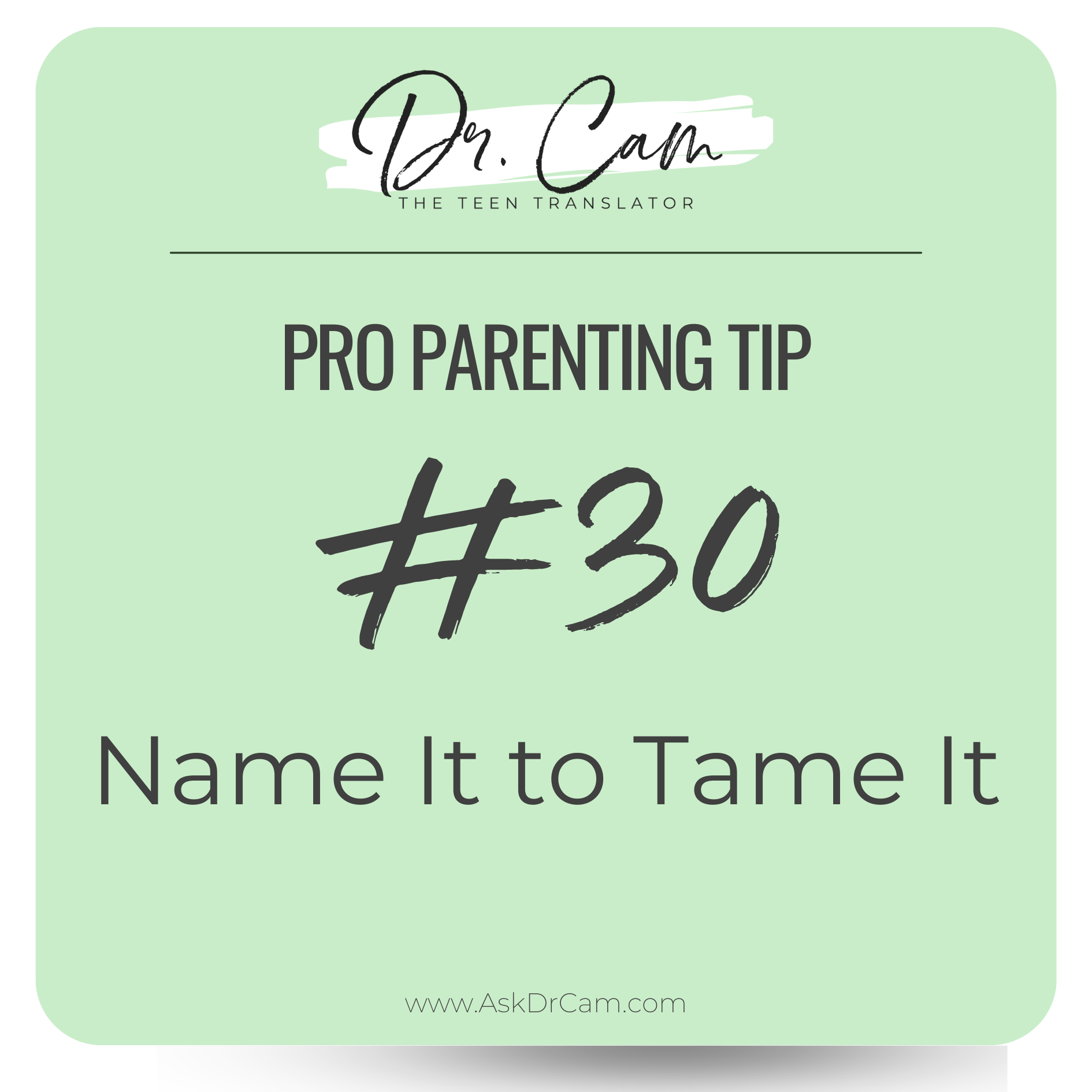Pro Parenting Tip #30: Name It to Tame It
“You’re fine.”
“It’s not that bad.”
“Cheer up.”
“Stop. Now!!"
Any of those sound familiar?
As parents, it’s tough to see our children feeling bad.
Our immediate instinct is to lift them up when they feel down or rein them in when they’re out of control.
Our intentions are good, but the message we’re sending isn’t.
We’re teaching them that negative feelings aren’t okay.
But telling them not to feel bad doesn’t stop them from feeling bad, it actually makes them feel worse.
Rather than learning to manage their emotions in a healthy way, they learn to suppress them, hide them, or feel ashamed of them. This has a long-term negative impact on both their physical and mental health.
Rather than seeking you out for support and guidance, they avoid you at all costs. They turn to friends and the Internet instead.
If you want to help your teens manage their big emotions AND learn to trust you, follow Dr. Dan Siegel’s advice:
Name it to Tame it.
“I can see you’re frustrated with this decision.”
“I understand you’re annoyed about it.”
"You're really nervous about taking that test."
When you acknowledge their difficult emotion and help them label it, you accomplish 4 important things:
1. Strengthen your connection. Putting a label to the emotion shows that you understand and validates what they are feeling.
2. Help them cope more effectively. Building your teen’s emotional vocabulary enables them to express their feelings with words rather than actions. It also helps them distinguish between feeling sad and depressed, nervous, and anxious, annoyed and hateful. The words themselves can temper the intensity.
3. Instill empathy. The best way to teach our kids empathy is to give them empathy. Also, when kids feel heard, they have more capacity to be compassionate to others.
4. Open the door to a solution. To cope with an emotion, we must first know what it is. Once they know how they’re feeling they can identify why they are feeling it and figure out what to do about it.
THE BOTTOM LINE
The more adept our teens get at naming their emotions, the less they’ll spin out of control.
BONUS TOOL
Download a FREE Emotion Wheel PDF to help you get started.

